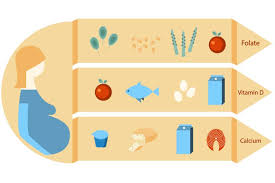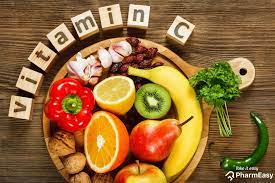Nutritional Supplements During Pregnancy: Boost Your Baby’s Development
It is a well-known fact that a balanced diet is an important factor for the health of both mother and baby during pregnancy and lactation and nutritional supplements play a vital role in it.
The nutritional requirements increase significantly during pregnancy in order to support the developing baby inside her. Hence suboptimal or excess nutrient intake during pregnancy can have a negative impact on you and your baby.
The nutrients obtained from food may not be adequate to meet the pregnancy demands; hence nutritional supplements that include vitamins and minerals need to be consumed. This article intends to give you a detailed description of all nutrients you need to take during pregnancy and what to avoid.
Important nutrients to be taken during pregnancy
-
Folic Acid
Folic acid is an essential nutrient for pregnant women who are planning to conceive or are in the early stages of pregnancy. To ensure adequate neural development in your baby, it is one of the most important nutrients you need. It is recommended to take folic acid supplements at least one month before conception and during the first three months of pregnancy.
Folic Acid in Pregnancy
The advised daily dosage for pregnant women is 400 micrograms, which can also be obtained from natural sources such as green leafy vegetables and fortified spreads. Folic acid is critical in preventing neural tube defects, such as spina bifida, in the developing fetus.
However, in some cases, a higher dose of folic acid is necessary for pregnant women to mitigate the risk of neural tube defects.
Women with a family history of neural tube defects, those who have had a previous pregnancy affected by this condition, those with diabetes, or those taking anti-epileptic or anti-retroviral medications are advised to take a higher dose of 4 milligrams of folic acid daily.
It should be taken by pregnant women at least 1 month before conception and the first three months of pregnancy. It is ideal for replenishing folic acid stores in your body if you are planning for pregnancy to promote adequate neural development in your baby.
The advised dosage for pregnant women is 400 micrograms daily and can also be obtained from green leafy vegetables and fat spreads enriched with it. These green leafy vegetables help prevent neural tube defects, including spina bifida, in the fetus.
Suppose there is the risk of neural tube defects like the history of a similar condition in the family, previous pregnancy affected by it, diabetes, or intake of anti-epileptic or anti-retroviral medicines. In that case, a higher dose of 4 milligrams of folic acid is advised for a daily dose.
-
Iron to Reduce the Risk of preterm birth

Iron is the next important nutrient from the suggested nutrients you need to be restored during pregnancy to prevent anemia.
Iron deficiency anemia has been linked to an increased risk of preterm birth.
Taking iron supplements during pregnancy can help reduce the risk of preterm birth.
Iron requirements obviously are increased during pregnancy, and at least 30-60 mg of elemental iron should be taken as a supplement.

If you have already been diagnosed with anemia, your doctor might advise a higher dosage.
You should start iron supplements during and after the first trimester because iron can cause unwanted side effects like constipation and vomiting and can aggravate the morning sickness of the first trimester.
-
Calcium Use in the Pregnancy
Calcium is essential for the development of your baby to make the bones and teeth strong. Calcium can be obtained from milk, cheese, yogurt, green leafy vegetables, fortified flour, and fish. The recommended daily dose of calcium during pregnancy is 1000 mg/day and should be taken after 12 weeks.
Supplements during pregnancy and after that help to keep us healthy. If you face any issues don’t forget to talk to your doctor.
-
Benefits of Vitamin D During Pregnancy
It is an important vitamin needed for bone health and immunity. Its deficiency during pregnancy can lead to an increased the risk of caesarian section, preterm birth, gestational diabetes, and preeclampsia. The advised daily intake of vitamin D is 600 IU/ day. In case of deficiency, higher doses might be advised.
-
Use of Multivitamins
These are taken to provide extra nutrients and overcome the nutritional gaps in pregnancy. Ensuring the use of vitamins and minerals during pregnancy can reduce the risk of high blood pressure and preterm birth.

Probiotics and magnesium are also known to provide several benefits during pregnancy. It is good for you and your baby. Some micronutrients like vitamins A and E need to be avoided during pregnancy. It is good to be safe to face the risk of any upcoming challenges.
Vitamin A & C
Vitamin A excess is known to cause congenital birth defects. On the other hand, the use of nutritional supplements during pregnancy with excess Vitamin E increases the chance of abdominal pain and premature rupture of the amniotic sack. It can also be harmful to your baby. Vitamin C is known to support the immune system by helping white blood cells function properly and boosting the production of antibodies.
The use of Vitamin C helps the body absorb iron from plant-based sources. It is essential during pregnancy to prevent iron-deficiency anemia.
The prenatal vitamin supports the overall health of the mother during pregnancy by providing important vitamins and minerals. These include vitamin D, vitamin C, and zinc. These prenatal vitamin nutrients help support immune function, promote healthy skin and tissue, and support energy levels.

You should follow the advice of your OB/GYN and nutritionist while taking the nutritional supplements. Always carry out laboratory tests to detect dietary deficiencies whenever possible before commencing the intake of these supplements. It is to avoid toxicity because anything in excess can be as detrimental as its deficiency.
Also, consult your specialist immediately in case of side effects while taking these supplements.








